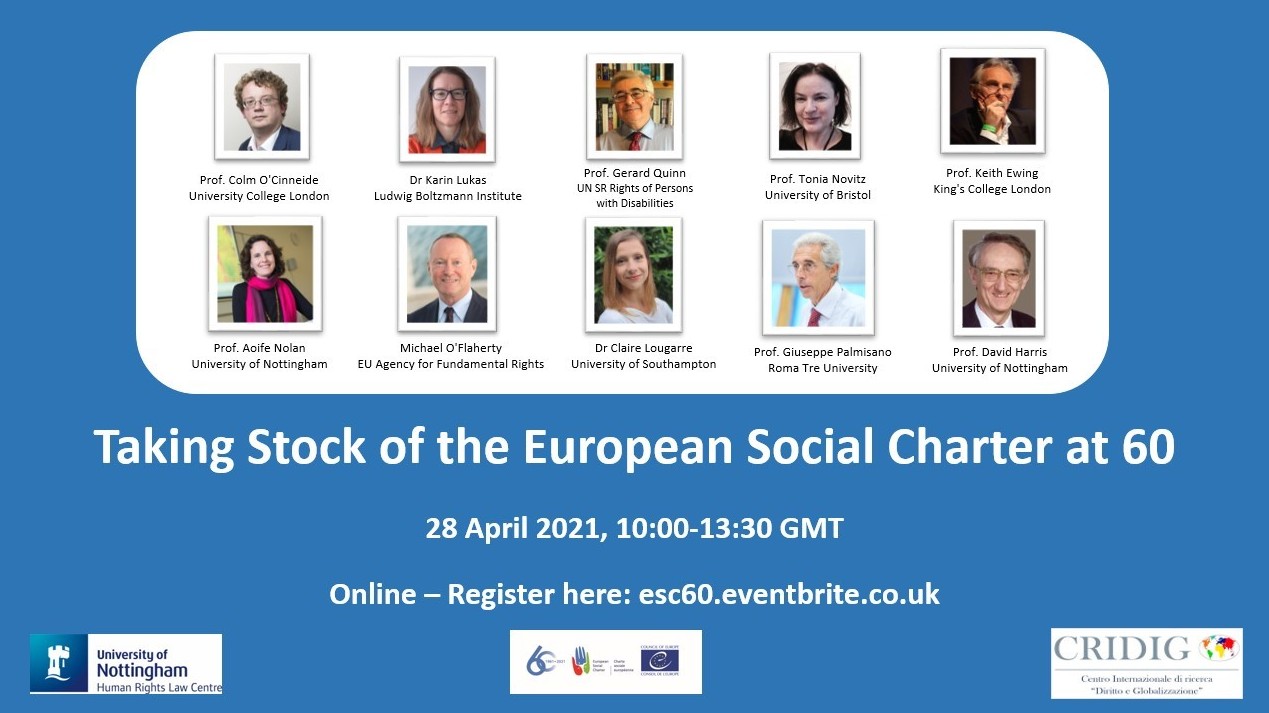On 5 November 1990 an Informal Ministerial Conference on human rights was held in Rome. One of the topics discussed was the European Social Charter, with the result that the Council of Europe’s Committee of Ministers was invited to take the necessary steps so that a detailed study of the role, contents and operation of the European Social Charter might be undertaken as soon as possible.
At their 449th meeting (November–December 1990), the Ministers’ Deputies decided to authorise the convening of an ad hoc committee, the Committee on the European Social Charter (Charte-Rel). Under its terms of reference, the Committee was instructed to make proposals for improving the effectiveness of the European Social Charter, and particularly the functioning of its supervisory machinery.
The Committee was composed of experts appointed by each member state. Its meetings were attended in a non-voting capacity by representatives of the Parliamentary Assembly, the International Labour Organisation, the European Trade Union Confederation and the Union of Industrial and Employers’ Confederations of Europe. The Committee of Independent Experts and the Governmental Committee of the European Social Charter were also involved in the work along with several other Council of Europe committees.
At its twelfth meeting (10-14 October 1994), the Charte-Rel Committee adopted a draft Revised European Social Charter and decided to submit it to the Committee of Ministers for adoption.
After consulting the Committee of Independent Experts and the Parliamentary Assembly, the Committee of Ministers adopted the text entitled the Revised European Social Charter on 3 April 1996 and opened it for signature on 3 May 1996.
According to the practice of the Council of Europe, this explanatory report has no binding value and was drafted only with a view to explaining the content of the Revised Charter. The Committee of Ministers authorised its publication when adopting the Revised European Social Charter.
From the outset, the aim has been that amendments to the text of the Charter should not represent a lowering of the level of protection provided for therein. It was also agreed that the reform would involve taking account both of developments in social and economic rights as reflected in other international instruments and in the legislation of member States and also of social problems not covered by the other international instruments in force. Furthermore, all amendments were to be made bearing in mind the need to ensure equal treatment of men and women.
The Revised European Social Charter takes account of developments in labour law and social policies since the Charter was drawn up in 1961. The Revised Charter is a comprehensive international treaty which brings together in a single instrument all the rights guaranteed in the Charter and the 1988 Additional Protocol, along with the amendments to these rights and the new rights adopted by the Charte-Rel Committee.
The instrument has been drafted in such a way as to be autonomous, but with the same supervisory machinery as the Charter. It does not conflict with the Charter but is intended to eventually replace it.
The Revised Charter presents Parts I and II in the same way as they are presented in the Charter and the 1988 Additional Protocol, adding the new rights at the end of each part. This presentation was deemed preferable since it had the advantage of being familiar, of avoiding confusion with the original texts and the existing case law and of facilitating the presentation of national reports. This will also allow new rights to be added in the future without changing the structure of the text.
The Revised European Social Charter does not provide for denunciation of the former Charter. However, if a Contracting State accepts the provisions of the Revised Charter, the corresponding provisions of the initial Charter and its Protocol cease to apply to that State. In this way, States are not simultaneously bound by undertakings at different levels.
The terminology used in the Revised Charter is in conformity with the model final clauses adopted by the Committee of Ministers in 1981, in particular the term "Contracting Party" in the Charter has been replaced by "Party".
More information




